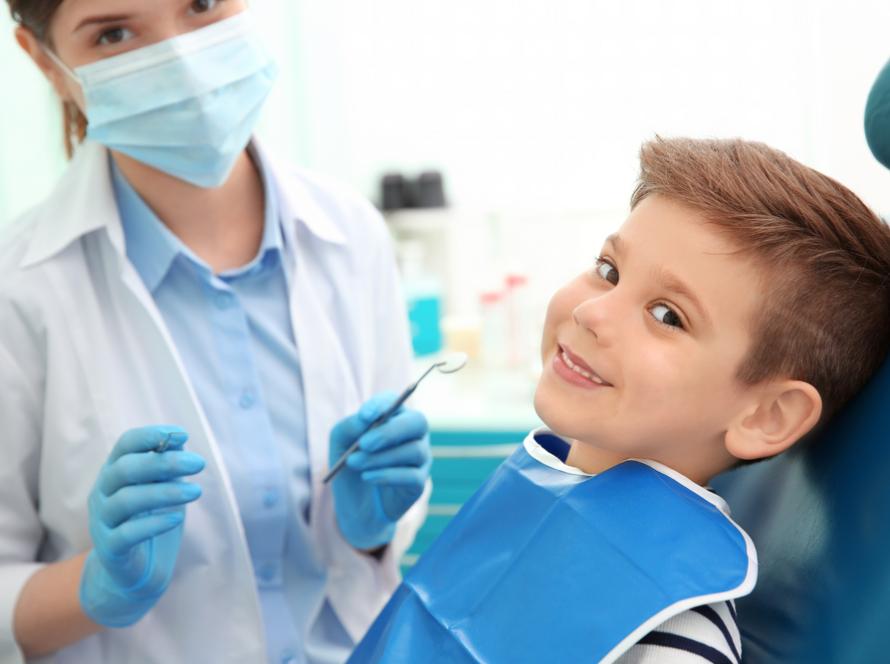Kids oral care should begin even as a baby as this practice ensures healthy teeth as they grow. Kids’ first set of teeth emerges between six months and three years old. This initial formation is crucial for good digestion, healthy adult teeth, and a strong jaw structure over the years.
Teaching kids the importance of healthy teeth and oral healthcare is crucial. Dental practices such as visiting the children’s dentist are key to keeping dental problems away.
Common Dental Issues in Toddlers and Preschoolers
It is essential to pay very close attention to your toddler’s oral health and seek remedies. Ignoring these problems can result in complications such as teeth infections, chewing problems, and speech issues.
Being aware of some common toddler dental problems helps you notice them before they become serious. From teeth grinding to cavities, your toddler may experience several dental issues. Fortunately, these dental problems are all preventable.
Grinding
Teeth grinding or bruxism can damage tooth enamel. Most toddlers grind their teeth during sleep, which disturbs their sleep. If left untreated, teeth grinding can damage kids’ primary set of teeth as well as their permanent teeth. Continuous grinding can lead to dental pain.
Most children outgrow this habit with age. If your toddler’s grinding problem persists even after several years, then visit a children’s dentist immediately.
Sensitive Teeth
Toddlers with a habit of consuming sugary foods can suffer from tooth sensitivity. Such children experience pain when eating anything hot or cold. If left untreated, sensitivity can damage enamel, cause gum problems, and lead to cracked teeth.
Limit sugary foods. If you suspect sensitivity, then consider using fluoride toothpaste.
Gum Problems
Gingivitis is common in toddlers. It causes gums to become red and inflamed. Gingivitis is caused by bacteria acting on food particles between teeth and forming plaque. Without proper treatment, gingivitis can damage the bone supporting the teeth.
Develop the habit of daily brushing and flossing in children to prevent gingivitis.
Tooth Decay
Consuming foods high in carbohydrates and sugars leaves deposits on teeth. Bacteria react with these deposits and form plaque. Recurring tooth decay can make eating difficult and develop speech issues in toddlers.
Make children’s dentist visits regular. A dentist cleans deposits and teaches children effective flossing and brushing techniques.
Tips to Improve Kids Oral Care
Kids learn to brush by age three. Encourage them to clean their teeth morning and night for two minutes.
Use a pea-sized quantity of fluoride toothpaste. Supervise them to ensure proper brushing.
Encourage flossing daily after teeth have grown closer.
Help your child stop thumb-sucking, as it can affect teeth alignment. Talk to a dentist to learn about positive reinforcement.
Keep your kids’ diet nutritious. Include vegetables, fruits, and whole grains for healthy gums and strong teeth.
Protect children from direct and second-hand cigarette smoke. Tobacco smoke can cause gum diseases and tooth decay.
Inspect your kid’s gums regularly. Examine the gums by lifting the lip. Check for brown or chalky spots. Visit a dentist for a solution.
Train children to avoid habits that spread tooth decay-causing bacteria. Avoid kisses on the mouth. Discourage sharing toothbrushes. Avoid blowing on food or sharing utensils.
Schedule dentist visits every six months. Start visiting a dentist as soon as your toddler turns one.
Tips to Encourage Healthy Dental Habits Early
Let your kids go for flashy toothbrushes with their favourite characters. These toothbrushes motivate them to brush.
Make the brushing routine interesting by making silly faces and introducing cute video songs. Make brushing an engaging play.
Allow kids to brush their favourite toys. As they clean the teeth of the toy, they get to know the right way to brush. They are more likely to use the technique themselves.
Set a reward. Something as inexpensive as a star or ice cream mark on their palm can do the trick. A reward is an appreciation of their daily efforts and motivation for brushing.
Oral care is essential for the development of healthy teeth and gums in your toddler. A healthy and beautiful smile looks serene on a baby. Help your preschoolers continue the beautiful smile life-long by teaching them good dental habits.


